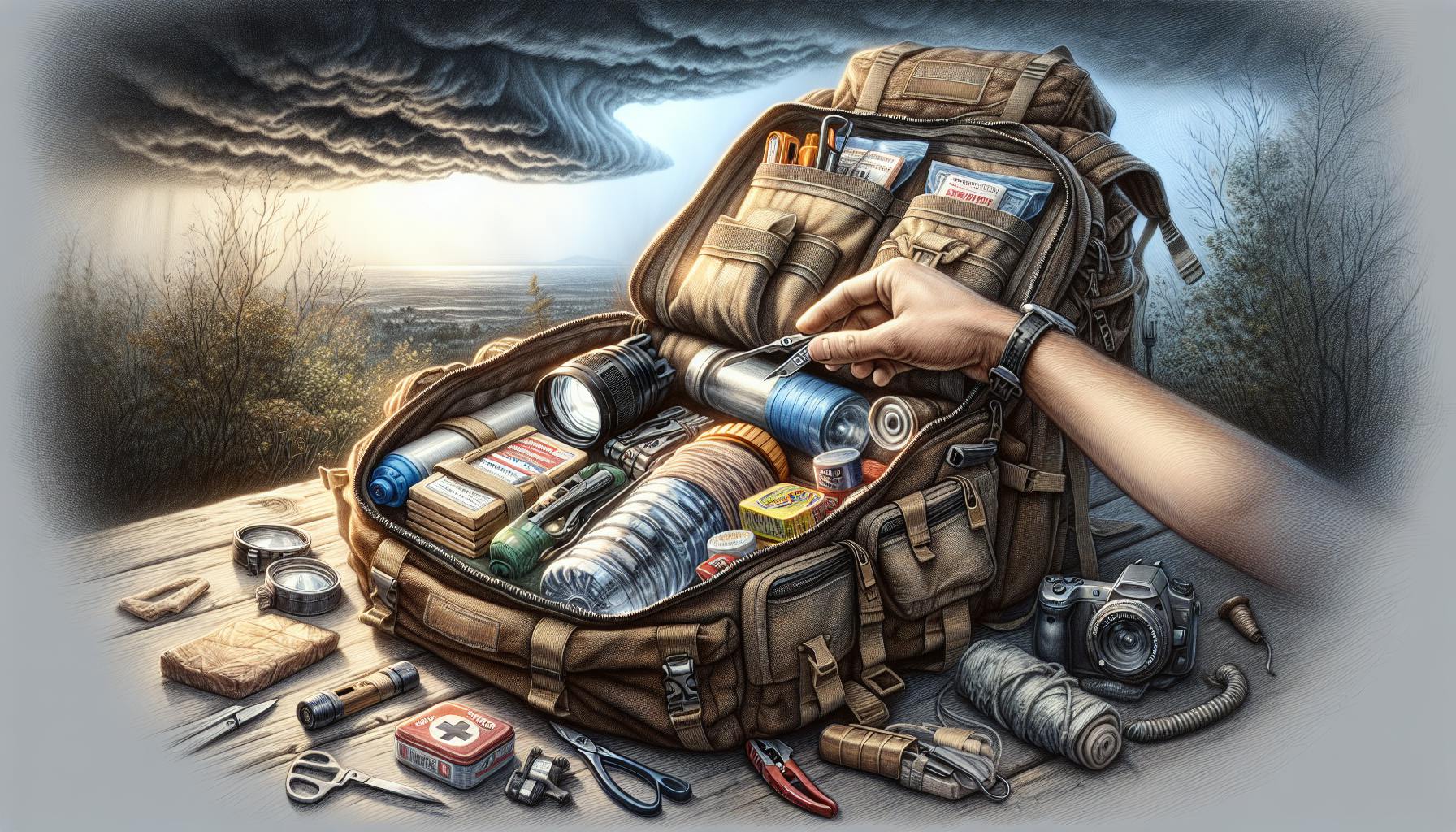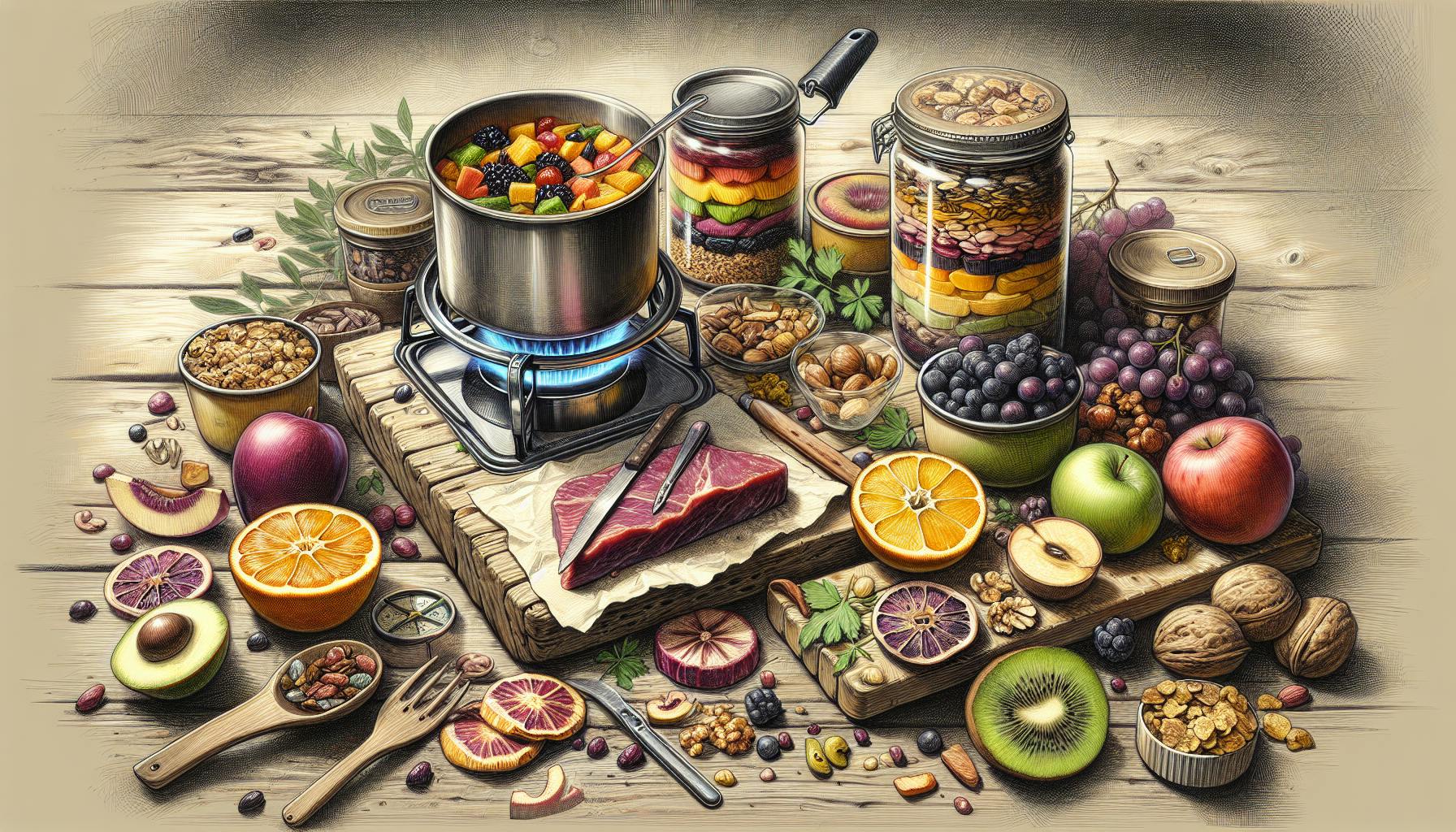Introduction
Flea markets are a hidden goldmine for preppers and survivalists seeking deals on critical supplies. Beyond the typical military surplus and camping vendors, these eclectic open-air bazaars offer a treasure trove of useful tools, gear, and equipment if you know where to look.
Thorough inspection before purchasing is key, especially for used goods. Haggling also gives savvy shoppers leverage lacking in retail stores. With preparation and flexibility, flea markets yield specialized finds not readily available elsewhere.
Overlooked Market Niches
Flea markets house niche vendorsmissed by less discerning shoppers. Dedicated hunting uncovers deals other buyers overlook.
Vintage military surplus offers battle-tested rucksacks, MREs, med kits, and rugged gear from Vietnam, Gulf War, etc eras.
Camping/hunting resellers provide obvious finds like cookware and fire starters. But rummaging reveals hidden gems passed over by less diligent buyers.
Homesteaders with excess tools offer hand-powered grain mills, oil lamps, gardening implements, and home canning supplies.
Crafters and artisans may provide hand-forged knives, pouches, or custom camping cookware. Special orders possible too.
Antique dealers provide solid woodworking tools, kerosene lanterns, and old-fashioned kitchenware.
Don't forget used book vendors for survival guides, first-aid manuals, DIY references, and more.
Savvy Shopping Strategies
-
Arrive early before competitors buy the best deals. Sellers often unveil fresh inventory at opening.
-
Bring a checklist of key needed items and cash in small bills for ideal negotiating. Exact change also smooths haggling.
-
Carefully inspect used goods for damage or wear. Thoroughly test electronics, tools, and anything with moving parts.
-
Haggle respectfully - it's expected. Start low but avoid overly aggressive bids.
-
Near closing time, reference remaining stock to request discounts as urgency builds for sellers.
Must-Watch Items
-
Camping: Tents, sleeping bags, LED lanterns, solar chargers, multi-tools, etc.
-
Tools: Axes, folding saws, shovels, carpentry tools, sewing kits, etc.
-
Cooking: Cast iron, mess kits, cutlery, manual can openers, etc.
-
Preserving: Mason jars, lids, funnels, hand-crank mills, vacuum sealers, etc.
-
Fire starting: Flint/steel, magnesium starters, waterproof matches, lighter fluid, etc.
-
Military surplus: Wool blankets, rucksacks, MREs, flashlights, first aid kits, etc.
Safety Checks
-
Inspect carefully for damage like cracks, missing pieces, etc. Test all functions.
-
Research recalls and defects before buying branded used goods.
-
Ask about prior repairs, modifications, or refurbishing done.
-
Thoroughly clean and disinfect any used clothing, bedding, or fabric items before use.
-
Don't store food/water in used containers without extensive cleaning first.
-
Bring a UV blacklight to check for stains on used clothing, camping gear, etc.
Additional Tips
-
For critical tools, prioritize quality over bargain pricing. Avoid poorly made gear.
-
Haggle respectfully. Avoid overly aggressive lowball offers that may offend.
-
Exchange contact information with sellers about specialty items they expect to get later.
-
Safely test used firearms extensively before purchasing. Examine firing pins, barrels, etc.
Top Finds for Any Prepper
Flea markets' diverse vendors mean almost anything can appear. Keep an open mindset and dig thoroughly. Seek versatile, durable, multi-use items built for heavy use. Pounce on rare finds like tactical gear, regardless of price, since inventory rotates quickly.
Water Storage and Purification
-
Stainless bottles, jerry cans, and nesting containers for reserves.
-
Sawyer filters, SteriPens, calcium hypochlorite tablets, and solar disinfection bags for purification.
-
55-gallon plastic drums for rainwater collection. Manual water pumps.
-
Collapsible jerry cans, foldable carriers, and used water coolers for portability.
Food and Cooking
-
Cast iron, dutch ovens, grills, and stainless pots for cooking over fires.
-
Military-style stainless canteen cups and mess kits for durable meal prep.
-
Used dehydrators and sealers for preserving meat, fruits, veggies, and making MREs.
-
Vintage hand-crank kitchen tools like flour mills, meat grinders, and butter churns.
Shelter and Sleep Systems
-
Durable canvas tents, large tarps, and oilskin ponchos for protection from elements. Wool blankets for warmth.
-
Closed-cell foam sleeping mats for insulation. Folding cots to stay off wet ground.
-
Extreme cold-rated military-style sleeping bags and modular sleep systems.
-
Folding camp chairs and tables for comfort and meal prepping.
Navigation and Communication
-
Lensatic compasses, maps, orienteering tools, and GPS devices for navigation.
-
Two-way radios, antennas, repeaters, and emergency crank radios for communication.
-
Marine sextants, star charts, celestial navigation gear, and altimeters.
-
Signal mirrors, whistles, flares, and satellite communicators.
Tools, Lighting, and Fire
-
LED flashlights, lanterns, and headlamps. Crank and solar-powered alternatives for off-grid use.
-
Firesteel, blastmatch, windproof lighters, waterproof matches, tinder, etc.
-
Quality axes, folding saws, digging tools, machetes, and multi-tools. Durable and portable.
-
Heavy-duty tarps, rope, paracord, carabiners, and tie-down straps.
Assessing True Value
Checking prices on comparable new items, estimating repairs, evaluating durability, and testing thoroughly helps determine fair pricing. Rare specialty purchases may warrant paying premiums.
Carefully inspect goods and query vendors about usage, repairs, storage, and issues. Factor in refurbishing costs too.
Item Origins and Usage
-
Ask about previous owners and usage conditions. Commercial or home use?
-
Inquire if repairs, modifications or refurbishing were done. Get details.
-
Request info on storage practices, maintenance, observed wear, etc.
-
Discuss expected usable lifespan and parts availability.
-
Elaborate on any listed flaws to estimate repair costs.
Repair and Upgrade Expenses
-
Estimate any visible repairs needed. Avoid substantial fixes.
-
Consider worthwhile upgrades like stove burner swaps, tool handles, waterproofing, etc.
-
Research prices on spare parts and accessories that may need replacing soon.
-
Account for consumable components like fuel, batteries, gaskets, etc. needing periodic change outs.
Compare New Item Pricing
-
Research current retail and discount prices on equivalent new items for comparison.
-
Factor in additional discounts like coupons and sales when evaluating new item costs.
-
Consider long-term pricing trends - is market rising or dropping?
Emphasize Testing and Inspection
-
Thoroughly test all functions and features. Make minor tune-ups as needed.
-
Perform visual inspection from all angles, especially for electronics or mechanical items. Bring tools.
-
Have knowledgeable friends second opinion test complex gear when possible.
-
Make quality and functionality top priorities - don't compromise for deals on defective goods.
Backup Plans and Walking Away
-
Have alternate items researched in case flea market deals fall through after testing.
-
Know your maximum negotiation price ceiling ahead of time for each target item.
-
Bring repair tools and supplies for minor on-site tune-ups if buying complex mechanical gear.
-
Be ready to walk away from purchases with excessive hidden issues or wear. Have cost thresholds set.
Finding Hidden Deals
While military surplus and camping vendors seem obvious, also check craft, antique, and gardening sellers for surprising finds. Search off-the-beaten-path nooks and structures housing unorganized offerings. Ask about excess inventory not on display too.
All Booth Types
-
Outdoor recreation for navigation tools, rucksacks, camping accessories
-
Homesteading for old-timey kitchen tools, hand pumps, oil lamps
-
Sporting goods for camping, hunting, and tactical accessories
-
Surplus vendors for MREs, first aid, heavy-duty apparel
-
Antique sellers offer solid wood tools, vintage tins, and more
-
Book vendors provide DIY, foraging, and self-reliance references
Vendors Clearing Storage
-
Chat with sellers about excess inventory they want to clear that isn't on display.
-
Check side bins, boxes, and overflow piles for unorganized items.
-
Search undercarriages, truck beds, and behind-booth spaces.
-
Ask specifically about bulky used equipment others might ignore.
Unconventional Spaces
-
Sheds, garages, barns, and structures may house hidden stashes.
-
Closed-off corners, alleys, and parking areas sometimes hold unorganized offerings.
-
Under tables, inside tents, behind curtains, and closed trailers.
-
Vendors in buildings/alcoves may have overflow items.
Unrelated Vendors
-
Gardeners may have old tools, hand pumps, rain barrels, seed banks.
-
Craftsmen can offer relevant handmade goods like knives, pouches, or cookware.
Custom Order Opportunities
-
Discuss ordering hard-to-find supplies in bulk.
-
Inquire about specialty or custom items on commission.
-
Get seller contact info for procuring rare stocks like surplus.
-
Offer references to encourage notifications of future inventory.
Maximizing Value Through Negotiations
Succeeding at flea market negotiations requires research, strategy, and patience. Compare vendor pricing to find the best deals. Wait until late day when urgency builds for clearing unsold items. Pointing out flaws during inspection provides bargaining power. Offering bundled pricing on multiple items also saves money. Have target prices set, and make gradual concessions.
Mastering Haggling
-
Stay respectful. Build rapport as a valued customer.
-
Make initial offers reasonably below asking prices. Avoid overly aggressive bids.
-
Politely point out damage and wear during inspection to request discounts.
-
Remain flexible rather than fixating on a single price.
Strategic Offer Amounts
-
Research fair price ranges ahead of time for realistic starting and ceiling bids.
-
Ask about bundled purchase discounts. Offer to buy multiple items for overall savings.
-
For rare items, open at or near asking price.
-
Near closing time, note urgency to clear remaining inventory to request discounts.
Optimal Deal-Sealing Times
-
Act quickly on rare deals other buyers will snap up first.
-
Afternoon and late day bargaining yields success as sellers want to clear items before leaving.
-
Near closing time, politely ask for a final lowest price due to late day urgency.
-
Offer to buy bulk volumes of identical items as the market wraps up.
Getting the Best Value
-
Cross-compare vendor prices on identical items to find the best deals.
-
For critical tools, prioritize quality and durability over bargain pricing. Seek out durable brands.
-
Bundle less-desired items with must-have gear to get discounts on overall buys.
-
Weigh costs of repairs against new purchase prices.
Paying with Cash
-
Cash allows better negotiating flexibility than credit cards.
-
Small bills ease gradual price concessions during haggling.
-
Having exact change removes need for vendors to make change.
-
Carry enough cash on hand to cover maximum target prices.
Conclusion
With preparation and a discerning eye, flea markets offer access to discounted survival supplies overlooked by typical buyers. Dedicated searching, thorough inspection practices, savvy negotiating skills, and understanding true values of finds are key success factors. Avoiding impulse purchases and paying fair prices for quality gear maximizes the return on time invested exploring vendors and their offerings. Happy hunting!


